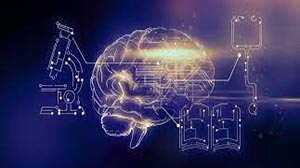AI Practical Ways
Practical Applications of AI: How Artificial Intelligence is Making a Difference in Everyday Life
Artificial intelligence (AI) is no longer confined to the realm of science fiction; it has become an integral part of our daily lives, transforming the way we work, communicate, and interact with the world around us. In this article, we explore some practical applications of AI that are making a tangible difference in various aspects of everyday life.
- Personalized Recommendations: AI-powered recommendation systems are ubiquitous in today's digital landscape. Whether we're browsing streaming platforms, online retailers, or social media feeds, AI algorithms analyze our preferences, past behaviors, and interactions to deliver personalized recommendations. These systems not only enhance user experience by surfacing relevant content but also drive engagement and conversion rates for businesses.
- Virtual Assistants: Virtual assistants like Siri, Alexa, and Google Assistant have become indispensable tools for millions of users worldwide. Powered by AI and natural language processing (NLP) algorithms, these assistants can perform a wide range of tasks, from setting reminders and sending messages to providing weather updates and controlling smart home devices. Their ability to understand and respond to natural language queries has revolutionized human-computer interaction.
- Healthcare Diagnostics: AI is revolutionizing healthcare diagnostics by analyzing medical imaging data, genomic sequences, and patient records to assist clinicians in diagnosing diseases and developing treatment plans. AI algorithms can detect anomalies in medical images, predict disease progression, and even identify genetic predispositions to certain conditions. These AI-powered diagnostic tools not only improve accuracy and efficiency but also enable earlier detection and intervention, potentially saving lives.
- Autonomous Vehicles: The development of autonomous vehicles represents one of the most transformative applications of AI in transportation. By integrating sensors, cameras, and AI algorithms, self-driving cars can perceive their environment, navigate roads, and make real-time driving decisions without human intervention. While fully autonomous vehicles are still in the testing phase, semi-autonomous features like adaptive cruise control and lane-keeping assistance are already available in many vehicles, enhancing safety and convenience for drivers.
- Fraud Detection and Cybersecurity: AI is playing an increasingly important role in combating fraud and enhancing cybersecurity. Machine learning algorithms can analyze vast amounts of data to detect unusual patterns and anomalies indicative of fraudulent activity or potential security threats. Whether it's detecting fraudulent transactions in financial transactions or identifying malware and phishing attempts in cybersecurity, AI-powered systems are helping organizations stay one step ahead of cybercriminals.
- Smart Home Automation: AI-powered smart home devices are transforming how we interact with our living spaces. From thermostats and lighting systems to security cameras and appliances, smart home devices can be controlled and automated using voice commands or smartphone apps. AI algorithms learn user preferences and behavior patterns to optimize energy usage, enhance security, and provide personalized home automation experiences.
- Language Translation: AI-powered language translation tools have made it easier than ever to communicate across language barriers. Whether it's translating text in real-time during international travel or facilitating multilingual communication in business meetings, AI algorithms can accurately translate between multiple languages with impressive speed and accuracy. These tools not only bridge linguistic divides but also facilitate cross-cultural exchange and collaboration on a global scale.
In conclusion, AI is revolutionizing everyday life in myriad ways, from personalized recommendations and virtual assistants to healthcare diagnostics and autonomous vehicles. As AI technology continues to advance, we can expect to see even more innovative applications that enhance convenience, efficiency, and quality of life for people around the world. However, it's essential to approach the development and deployment of AI ethically and responsibly to ensure that its benefits are realized equitably and without unintended consequences.



